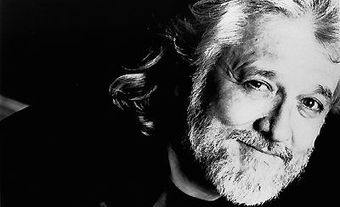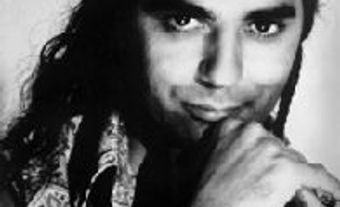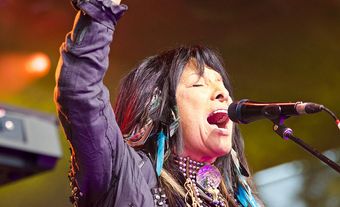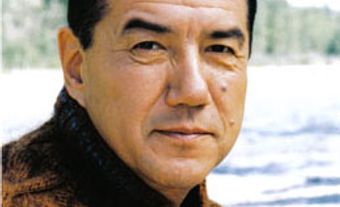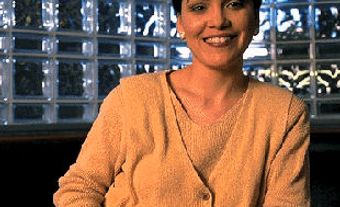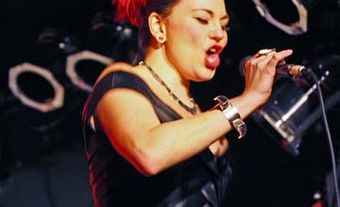Jaime (Robbie) Robertson, OC, guitarist, songwriter, singer, actor, producer, executive (born 5 July 1943 in Toronto, ON; died 9 August 2023 in Los Angeles, California). Robbie Robertson saw success as one of the key songwriters and musicians in The Band. Later, his solo work involved collaborations with Bob Dylan, John Hammond and Daniel Lanois. He also worked in the film industry as a composer, actor and producer. Robertson was nominated for five Grammy Awards and won five Juno Awards, including two for Producer of the Year. An Officer of the Order of Canada, he was inducted into Canada’s Walk of Fame and the Canadian Songwriter’s Hall of Fame. He received multiple lifetime achievement awards, including a Governor General’s Performing Arts Award.

Early Musical Career
Robbie Robertson learned to play guitar while visiting family on Six Nations of the Grand River near Brantford, Ontario. He turned to rock ‘n’ roll in his teens and joined Ronnie Hawkins’ Hawks in 1960. He remained with The Hawks after they left Hawkins in 1965, relocated in the US and continued from 1968 to 1976 as The Band. For The Band, Robertson wrote such classic songs as "The Weight,""The Night They Drove Old Dixie Down," "Up on Cripple Creek," "Rag Mama Rag," "Chest Fever," "Stage Fright," and "The Shape I'm In."
Robertson’s stinging, violently lyrical style brought him recognition as one of the premier guitarists in rock during this period. He also appeared on Bob Dylan's Blonde on Blonde and John Hammond's I Can Tell in 1965. In 1970, he produced and played on Jesse Winchester's debut album.
Film Career
Although regarded as The Band's creative force, Robertson did not participate in the group's various revivals during the 1980s. Based in Malibu, California, he worked in film. Some of his credits include producing, acting in and composing music for the feature Carny. He served as music producer for Raging Bull, The King of Comedy, The Color of Money, and The Gangs of New York.
Solo Career
In 1987, he released the LP Robbie Robertson, co-produced with Daniel Lanois. The album’s lyric and musical imagery evoked Robertson's maternal Haudenosaunee ancestry. It included such songs as "Showdown at Big Sky" and "Somewhere Down the Crazy River," which were popular in 1988. It brought Robertson a Grammy nomination in 1988 for Best Male Rock Vocal. Additionally, he won a Juno Award in 1989 for Album of the Year, as well as Male Vocalist of the Year. That year, he and Daniel Lanois also won Producer of the Year. Canadian sales exceeded 200,000. A second album, Storyville, was issued in 1991. It received two Grammy nominations.
Contributions to Recognition of Indigenous Music
Robbie Robertson explored Indigenous music in his next two recording efforts. Music for "The Native Americans," a collaboration with Kashtin and other Indigenous musicians, served as the soundtrack to a PBS television documentary. It sold over 75,000 units in Canada. The album earned Robertson a Juno Award as best producer. Contact from the Underworld of Redboy likewise earned him another Juno Award, as well as a Native American Music Award in 1999. These recordings have been credited with helping Indigenous music gain mainstream acceptance and peer recognition.
Legacy
Robertson's songs, described by Jay Cocks as "small chapters of freshly minted American mythology, lyric and funny, funky and mysterious," have also been recorded by Joan Baez, Eric Clapton, Jackie DeShannon, Aretha Franklin, Ronnie Hawkins, Emmy Lou Harris (who used "Evangeline" as the title song of an LP in 1981), Diana Ross and the Supremes, among others.
Robertson joined DreamWorks Records as an executive in 2000. He oversaw the anniversary reissue of The Last Waltz. He has been featured on CBC TV's Life and Times (2001) and in the PBS documentary Making a Noise.

Awards and Honours
- Producer of the Year (“Big Sky,” “Somewhere Down the Crazy River”), Juno Awards (1989)
- Male Vocalist of the Year, Juno Awards (1989)
- Album of the Year (Robbie Robertson), Juno Awards (1989)
- Producer of the Year (“Skin Walker,” “It Is A Good Day to Die”), Juno Awards (1995)
- Lifetime Achievement Award, National Academy of Songwriters (1997)
- Lifetime Achievement Award, Native American Music Awards (1998)
- Best Music of Aboriginal Canada Recording (Contact from the Underworld of Redboy), Juno Awards (1999)
- Lifetime Achievement Award, Aboriginal Achievement Awards (now Indspire) (2003)
- Honorary Doctorate, Queen’s University (2003)
- Inductee, Canada’s Walk of Fame (2003)
- Lifetime Artistic Achievement, Governor General’s Performing Arts Awards (2006)
- Honorary Doctorate, York University (2005)
- Officer, Order of Canada (2007)
- Inductee, Canadian Songwriter’s Hall of Fame (2011)

 Share on Facebook
Share on Facebook Share on X
Share on X Share by Email
Share by Email Share on Google Classroom
Share on Google Classroom

